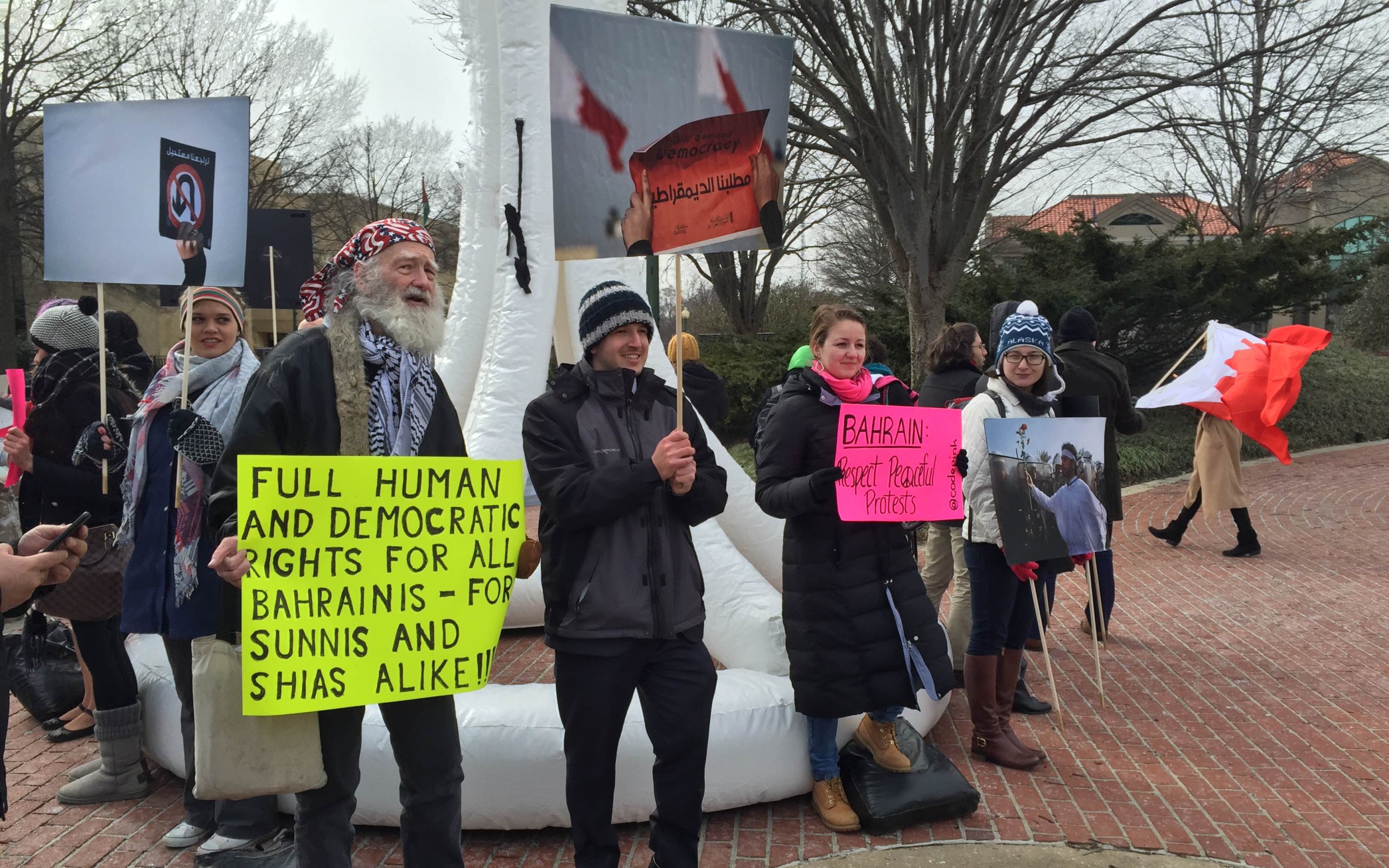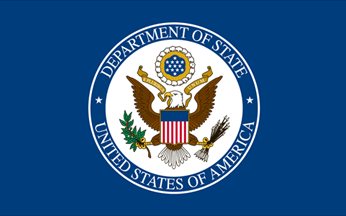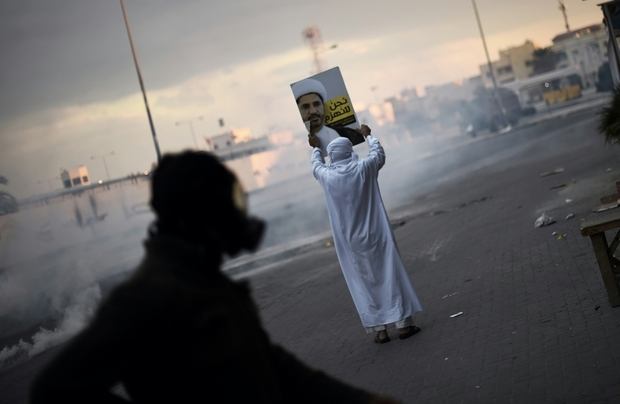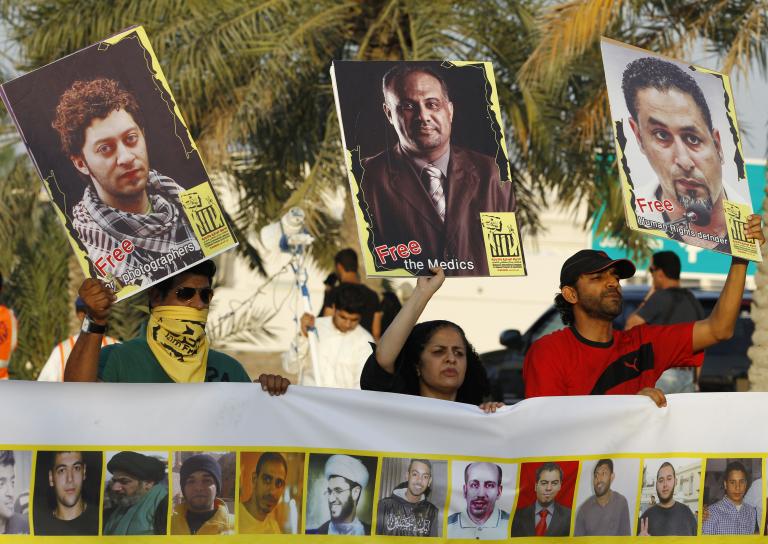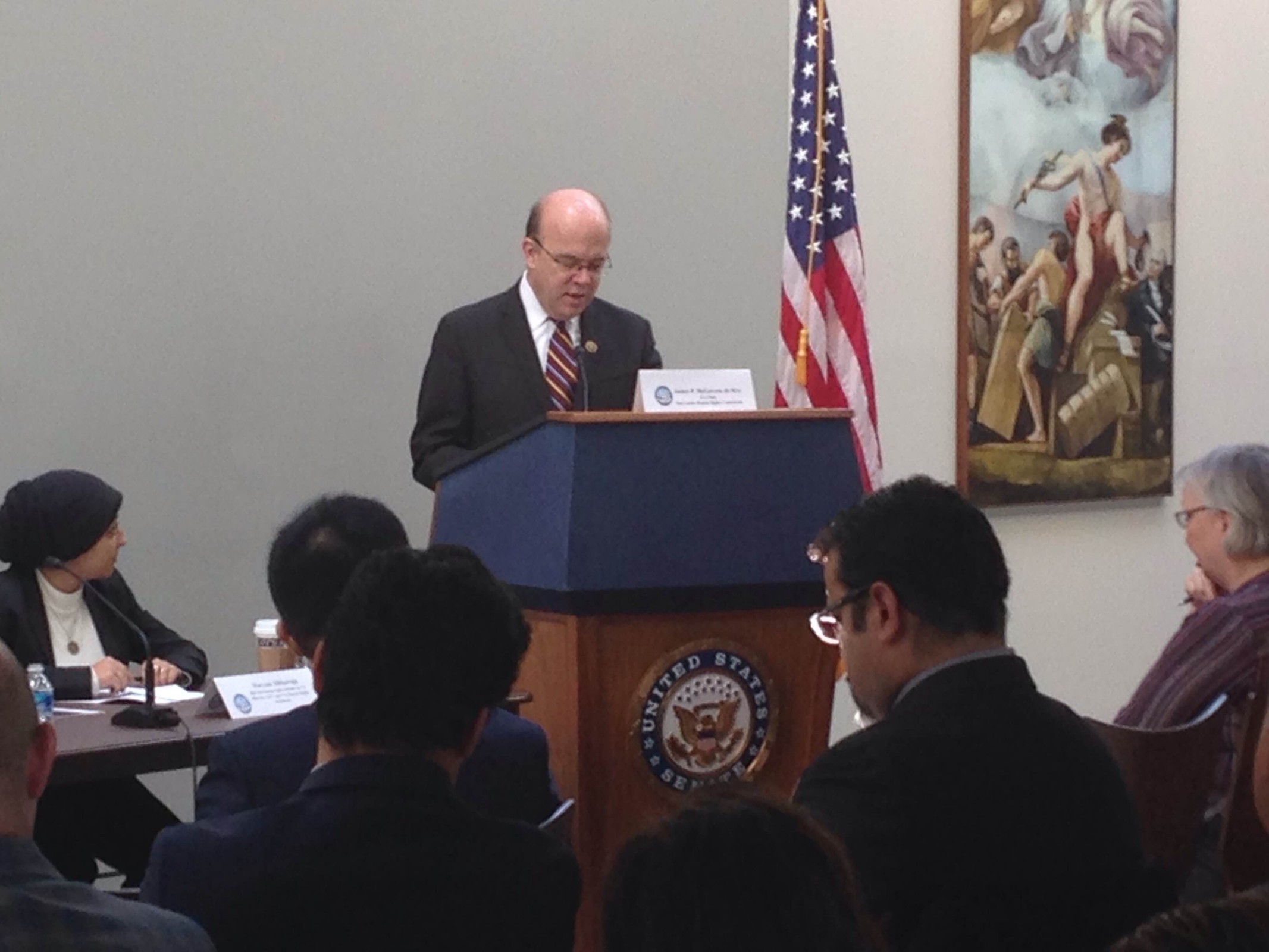Voices from the Ground: February 14th As part of ADHRB’s Voices from the Ground interview series, we spoke with Bahraini human rights activists about their experiences during the country’s peaceful uprising and the historical significance of the protests at the Pearl Roundabout. According to one activist, the protests represented “a quantum leap for Bahrain. Following 14[…]
On 17 February, the US Department of State (DoS) issued a statement commemorating the fifth anniversary of Bahrain’s pro-democracy uprising in 2011 when “Bahrainis from all backgrounds called for political reforms that would bring greater respect for their universal rights and fundamental freedoms.” In particular, the DoS acknowledges that though Bahrain has created institutions to “improve oversight of security institutions…more work[…]
Bahrain | Updates from the Ground | News & Opinion UN Complaint Program Bahrain Bahrain’s five-year plan of repression On the fifth anniversary of Bahrain’s pro-democracy uprising, ADHRB’s Kate Kizer and Michael Payne describe how the government has gradually institutionalized the methods of violence and intimidation that it first used to suppress demonstrations in February 2011. Moreover, they argue[…]
On Sunday February 14, Bahraini authorities arrested four American journalists including Anna Therese Day during the protests that marked the fifth anniversary of the 2011 mass pro-democracy uprising. Bahraini authorities detained them “as a result of their involvement in criminal acts, and because one was concealing his face at the time of his arrest.” Authorities[…]
On 11 February 2016, the Tom Lantos Human Rights Commission (TLHRC), in conjunction with Americans for Democracy & Human Rights in Bahrain (ADHRB) and Human Rights First (HRF), held a briefing in the Hart Senate Office Building on the ongoing human rights situation in Bahrain. Panelists included Brian Dooley, Director of the Human Rights Defenders[…]


